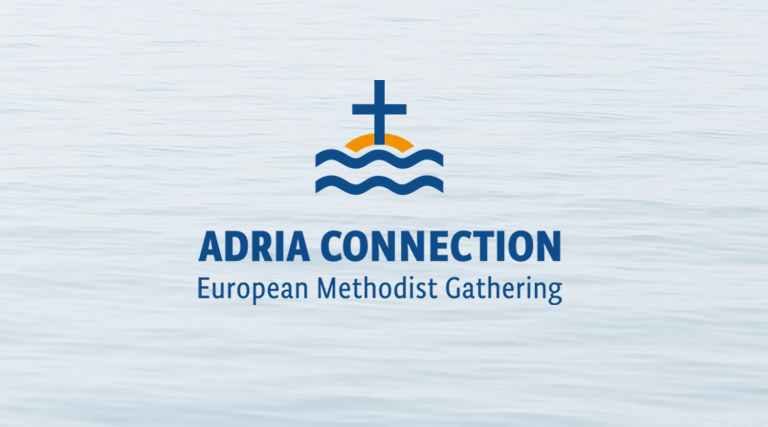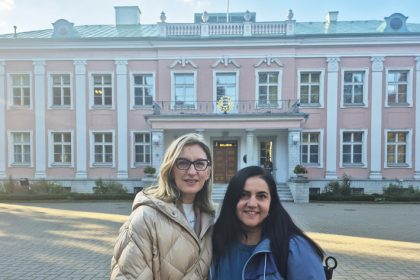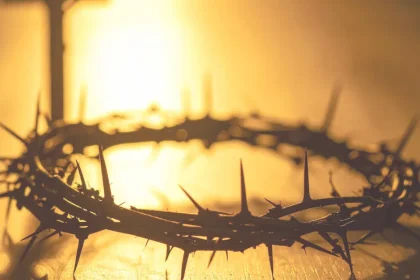Due to the split in the United Methodist Church (UMC), there is a need to create connections and find opportunities for fellowship and information sharing with European conservative Methodists. Vatroslav Župančić, pastor of the Croatian Methodist Church, decided to organize a gathering of representatives of conservative churches in Europe to create connections, have a fellowship and share thoughts about the future. 4 days long meeting called Adria Connection took place on the Adriatic coast in a town called Crikvenica in Croatia. There were participants from Slovakia, Germany, Romania, North Macedonia, Serbia, USA, Congo, Estonia and the host country Croatia. Among the participants there were regional superintendents, clergy and lay people. Not everyone was at the meeting as an official representative of the Methodist Church in their area, but rather out of a personal interest in being in contact with conservative Methodists. In addition to the Methodist Church, the Croatian Nazarene Church was also represented at the meeting, with which the Croatian Methodists cooperate closely.
The situations in European Methodist churches are different.
• Some countries have disaffiliated from the UMC and joined the Global Methodist Church (GMC). This has been done, for example, by Bulgaria, whose superintendent was unable to participate in the gathering. A Zoom meeting was organized during the Adrian Connection meeting with him. According to Bulgarian superintendent, disaffiliation from the UMC was a big risk for the Bulgarian Methodist Church, because it was financially dependent on UMC. The church sold some property to create a financial reserve for the period when the church structure is redesigned to be more mission oriented.
• There are countries where the Methodist Church has decided to leave the UMC and remain independent.
• In some countries, the Methodist Church wants to disaffiliate from the UMC, but the decision to separate has not been made because it would mean losing financial support from the UMC.
• There are countries where the Methodist Church remains in the UMC and people with conservative views leave it and join the GMC or another traditional church.
The representatives of the churches that have already joined the Global Methodist Church said that the newly created denomination is oriented towards founding new churches. The GMC management’s expectation for the congregations is that they focus their attention on the main task, which is to preach the Gospel. Since the disaffiliations of conservative churches from UMC and joining the new denomination is still in the process, the structure of the GMC is not yet complete. Currently there are three bishops in the GMC. The bishop of the European region is Mark Webb. During the Adria meeting, a half-hour Zoom meeting was organized with him and GMC leader Keith Boyette, where news on the global church was shared.
Several presentations took place at the meeting of the Adria Connection.
• Former UMC pastor Friedemann Burkhardt from Germany, who has joined the GMC, expressed in his presentation the idea that the character and qualities of a Christian become the most important building material in his life, giving a significant influence both in the life of the church and in the preaching of the Gospel. According to Burkhardt, the opposites of the keywords expressed in 1Cor 4-7 describe the character of a toxic church, and we must avoid becoming such when we are forming a new denomination.
• Randy Coleman, who serves as GMC pastor in the state of Ohio, USA, encouraged the participants with a message about prayer, recalling that as a result of the disciples’ joint prayer, they were filled with the Holy Spirit and the world was changed. A similar movement of the Holy Spirit was launched after a joint prayer of twenty Asbury students in February of this year.
• Mitch Arnold, also from Ohio, highlighted the importance of accountability groups from J. Wesley’s teaching and told the story of Wesley’s life, when he acted based on high church fanaticism without his heart having surrendered to God.
• The Superintendent of the Church of Slovakia, Gabriella Kopas, shared a message of encouragement: the chorus in God’s Word that God is in control of the situation is valid even in the midst of confusion and difficult times.
In the presentations and discussions, several people said that we have fallen too far from Wesley’s teaching in practice – our focus is too much on the church as a structure, we focus too much on ourselves and internal church issues, and we pay too little attention to our mission. Several participants expressed the longing that as a church we need to go back to our roots in the practice of Wesleyan teaching and focus our activities on what we have been called to do – share Christ.
In addition to encouraging presentations and overviews of what is happening in different countries, the organizer of the meeting, Vatroslav, arranged an excursion for the participants to an island called Krk, which surrounded a tiny islet with a Franciscan monastery on it. A visit to the islands with a Mediterranean atmosphere was a nice change from the discussions and presentations that took place indoors.
According to the organizer Župančić, the purpose of the meeting was to share information about how European conservative Methodists are doing, to be in fellowship, to create connections and to make plans for the future. As a participant, I can confirm that I received a lot of new information about the situation of Methodists in Europe, Congo and in the state of Ohio in the United States. I got new contacts, new acquaintances and experienced a sense of unity from the meeting. The meeting was a good and safe environment for Christian fellowship.
Marjana Luist
Assistant to the Superintendent of the Estonian Methodist Church
Editor of the Estonian Methodist Church magazine



